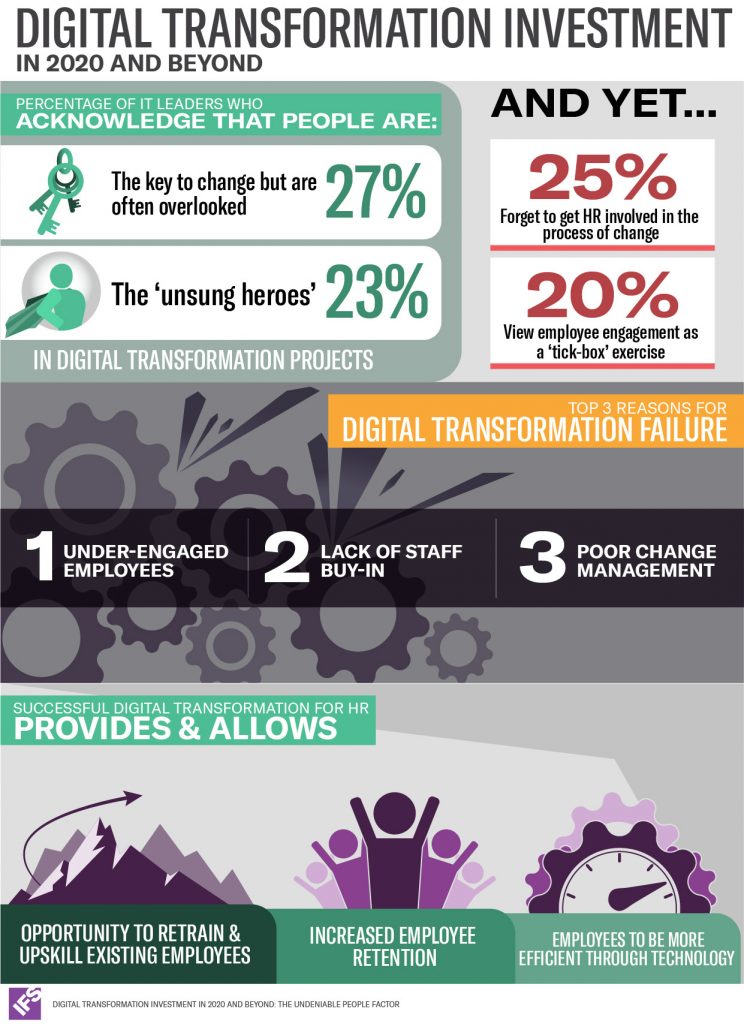 The human factor is widely recognised as an essential component to digital transformation success. In fact, over a quarter (27 percent) of companies acknowledge that despite being key, people are often overlooked when planning and executing transformative projects, according to a research study from global enterprise applications company IFS.
The human factor is widely recognised as an essential component to digital transformation success. In fact, over a quarter (27 percent) of companies acknowledge that despite being key, people are often overlooked when planning and executing transformative projects, according to a research study from global enterprise applications company IFS.
The study goes on to identify poor change management as one of the key reasons digital transformation projects fail. When implementing new digital transformation projects, businesses are focused on implementing the key technology and solutions but aren’t considering the importance of staff buy-in and acceptance of the project, which is intrinsically linked to its overall success.
When asked about the reasons for failure in past projects, businesses also cited lack of employee engagement among the top four reasons. In addition, respondents named past experiences of low employee buy-in as one of the top two reasons for hesitating to launch new digital transformation projects. This can potentially have a great impact on the overall development of a business, as in times of downturn many believe innovation is the key to business resilience.
The broad focus on people-related considerations among companies goes hand in hand with a widely held concern for soft values such as vendor culture and ethics, which was revealed by a previous IFS study.
Although one third of respondents identified involving the human resources (HR) department from the beginning to ensure employee awareness as key to digital transformation success, one quarter of companies admitted that they have been guilty of not doing so in the past. Furthermore, 21 percent of companies expressed that employee engagement is more of a “tick-box” exercise, as opposed to being critical for success, revealing an obvious mismatch between recognition and actual execution.
From an HR perspective, there is ample proof that digital transformation makes good business sense. 29 percent of respondents stated that employee retention would be higher if the business could offer more exciting technology to its people, indicating that technology does have employee retention possibilities. Furthermore, 39 percent said that technology provides the ideal opportunity to retrain and upskill existing staff, thereby bridging the skills gap that is a major pain point in many industries.
“Through continuous dialog with our customers as well as first-hand experiences from our own digital transformation, we have always known that people can act as both an enabler and a barrier in transformation projects,” IFS Chief Human Resources Officer Jane Keith said. “This report drives home the point that if digital transformation is kept human centric and if change management is handled effectively and employees are aware and inspired to support the transformation, the business is much more likely to reap success. Staff involvement should not be seen as a just a tick-box exercise but as the secret sauce that will ultimately determine the outcome.”










Discussion about this post